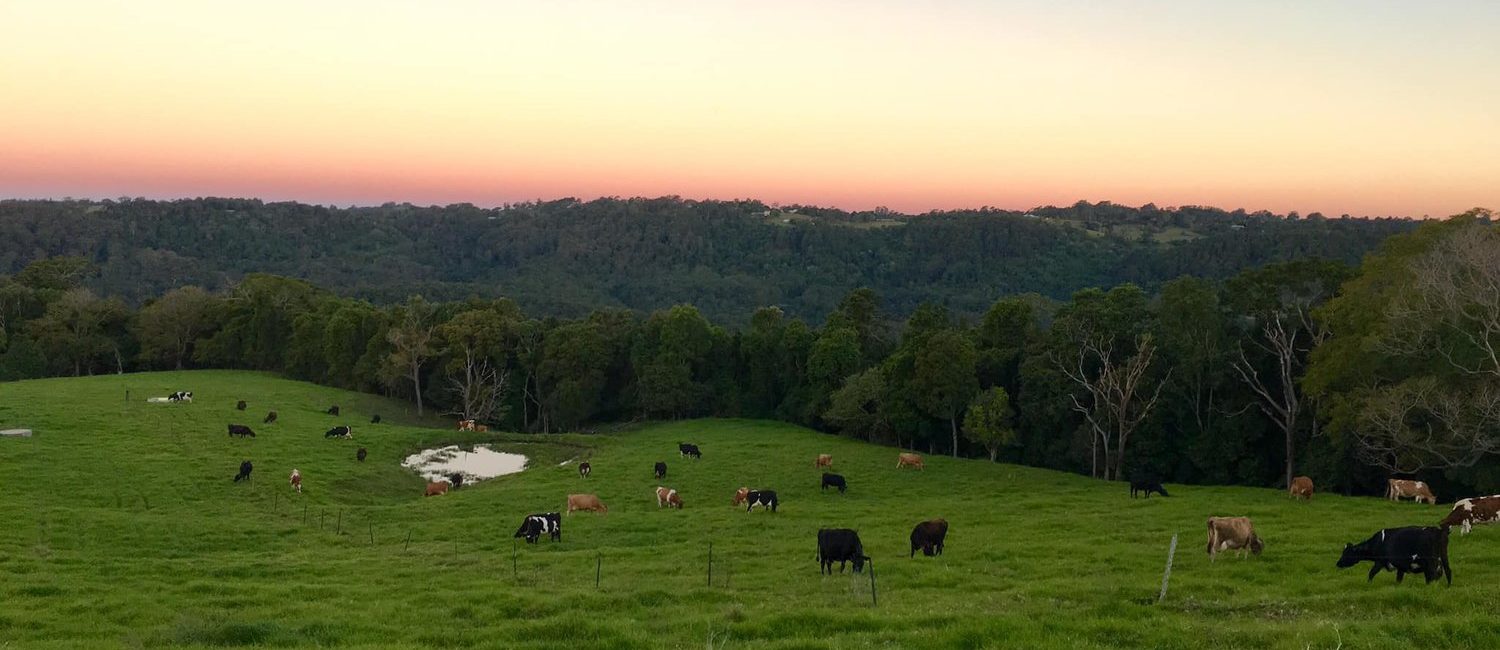
Witta
Witta
Fresh air, peace and tranquillity. That’s what is on offer in the small hamlet of Witta.
Witta offers the chance to stroll the few streets that make up the little village and take in some fresh air or perhaps drop into the general store. Although the general store is a modern building, the owner, George Soady, says there was once an older store on that site.
Further down the road from the store is the original Witta School. The Witta School is now a community facility with toilets, shady areas and picnic tables. This is also the site of the beautiful Witta Market, held on the third Saturday of each month, attracting many local produce suppliers and artisans.
Across the way from the school, the Witta Recreational Club has a children’s playground and a large playing field.
But Witta’s best-kept secrets are twofold. Just across the road from the store is what the locals boast is the best view of the head of the Mary Valley that gives rise to the Mary River. The second secret is historical – the old Witta Cemetery. A walk around Witta Cemetery proffers a snapshot of the early settlers. Scattered across the cemetery are the names of the first German families who settled at Witta. Curiously, pictures or symbols accompany many of the inscriptions on the gravestones. The symbols indicate the interests of the deceased like musical notes, piano, horse rider, fisherman and sailing ships. Then there are epitaphs like ‘It’s not the first game that counts, it’s the last one.’
History
The Maleny district was first settled by Europeans in the 1870s. Settlers were attracted to the area because of the extensive stands of Red cedar. Cedar logs were taken by bullock teams to the coast and then rafted down the Pumicestone Passage to a site on Bribie Island, from where they were loaded on to ships and exported to market. Early selectors included Isaac Burgess (of Landsborough) and Joseph McCarthy, both of who took up land in 1878-9. They were soon joined by other selectors, including the Simpson Brothers and Francis Dunlop, the latter owning the land on which the present day town of Maleny is situated.
Several key settlements emerged by the 1880s: along Obi Obi Creek, later named Maleny; Wootha and Teutoburg. Teutoburg is believed to have been first settled by the Nothling family c1887, followed by other German families. Various authors theorise that the name reflects that the settlers came from the Teutoburg area in Germany. However, ‘Teutoburg’ only refers to a forest, not a town or ‘area’ and, at least in the case of the Nothlings, that family did not live anywhere near the forest. Instead, the naming of the new settlement is probably symbolic. The forest was the site of a battle in 9CE in which a confederation of Germanic tribes defeated a Roman army. The ridgeline on which the forest is located was for centuries called ‘Osning’, but it was renamed ‘Teutoburg’ in the 1870s, which roughly translates as ‘people’s castle’; Germany had only recently unified following the 1870-1 Franco-Prussian War and the defeat of the Romans provided a foundation story to support the creation of the German nation. Teutoburg (Witta) became known as ‘Little Germany’ in newspapers in the late nineteenth century and the settlers more than likely named the settlement Teutoburg to symbolically reflect the majority German population there.
A town reserve was surveyed there in 1888 and, interestingly, it was called ‘Maleny’, but the local residents lobbied for the name to be changed to Teutoburg. ‘Maleny’ was transferred to the settlement on Obi Obi Creek, which still bears the name today. Key developments in Teutoburg included the establishment of a school in 1892 and the erection of a Lutheran church in 1893. The congregation apparently split soon after and was only reconciled in 1902. The current church was erected in 1911. The area was noted for its crops, cheese and wine, as well as the timber industry. The Witta Sawmill, owned by the Tesch family and established in the 1910s, was a major business in Witta, eventually expanding to Caloundra and Landsborough.
Teutoburg was renamed Witta in 1916 due to anti-German feeling in Queensland as a result of World War I, an approach reflected elsewhere in Australia at the time.
History Source - 'Thematic History of the Sunshine Coast', Sunshine Coast Heritage Study, Sunshine Coast Council, August 2019


